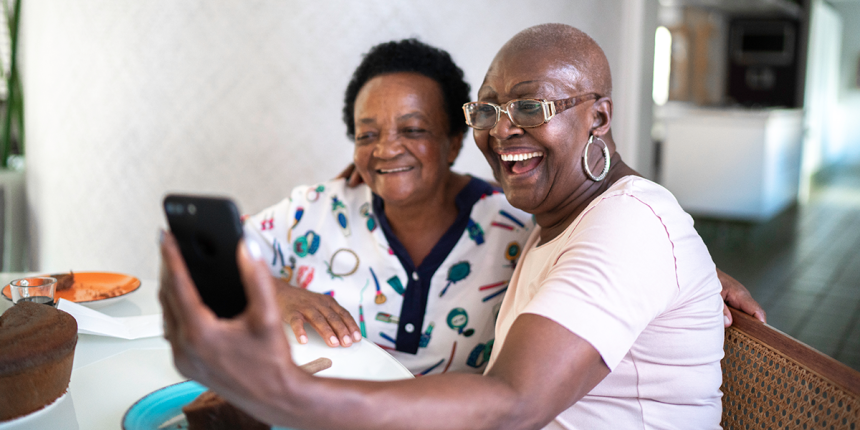The Health Benefits of Keeping Your Friends Close

We all have a friend or two we’ve known for years and still adore. Too often, these gems don’t live near us anymore. We can count on them for support and great conversation, but that happens by phone and text these days.
As much as we love our dearest friends far away, they can’t fulfill our inherent needs as social creatures. To thrive, we also need social connection closer to home, people in our neighborhoods whom we can count on not just for support, but also to change a lightbulb, or bring over a cup of sugar, or give us a lift to a doctor appointment.
These aren’t the only reasons to build new bonds close to home. You’ll also be rewarded with better health in the long run. Researchers behind a wide range of studies noted better health in these specific areas:
Mood and depression
Researchers are beginning to look more closely at the various benefits of friendships within neighborhoods. A study out of Japan found that for both men and women, neighborhood-level bonding appeared to have a protective effect against depressive mood in older adults.
Cancer screening
In neighborhoods with higher levels of social capital – those tight-knit bonds where neighbors help neighbors – adults were more likely to get cancer screenings at recommended ages.
Post-surgical rehabilitation
The day may come when you or your family need surgery that requires rehab. A supportive community can help you get on your feet – literally – by encouraging walks and making you feel safe and comfortable when you shop or do other community activities.
Obesity
It’s hard to battle obesity in the best circumstances. Researchers wanted to know which social situations might make it easier to avoid obesity and/or manage it well. What they learned was that social capital seemed to be protective against obesity (but having multiple family members around was not).
Everyday chores
Communities with higher social capital can help their residents, especially seniors, with routine but challenging labor, such as weeding gardens and shoveling snow. That translates to less risk of injuries like falls and back strains in the most vulnerable members.
Cognitive decline
One large study of more than 1,100 seniors assessed cognitive function over a 12-year period. Those who had frequent social contact experienced 70 percent less cognitive decline than those with infrequent social contact.
Physical mobility and independence
When you live in a neighborhood with high social capital – from bonded suburban subdivisions to senior living communities – you’re more likely have greater physical mobility, independence, and mental well-being. A beautiful home is nice, but a beautiful community can enhance your quality of life today and help you age with greater independence.
And if a move isn’t on the table? It’s never too late to reach out to neighbors, even those you barely know, and invite them over for coffee or tea. Given the recent trend in loneliness [you can link to loneliness story here], those neighbors will likely welcome the chance to connect.
